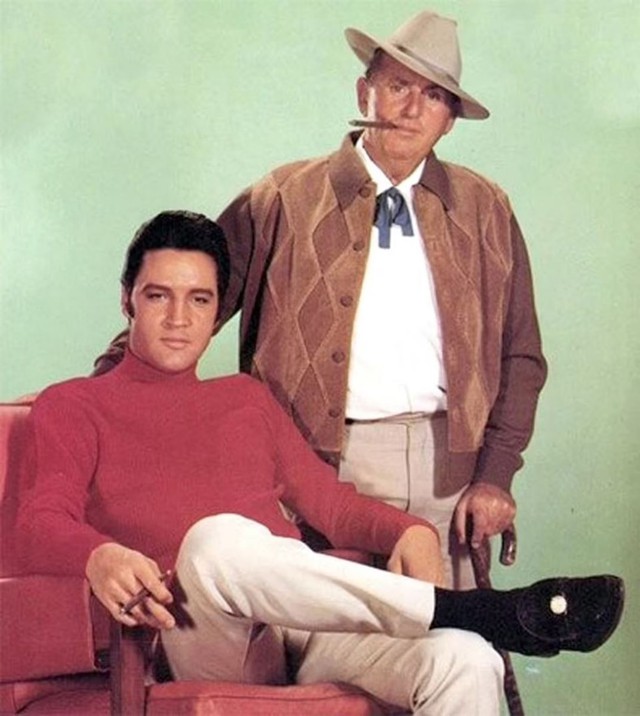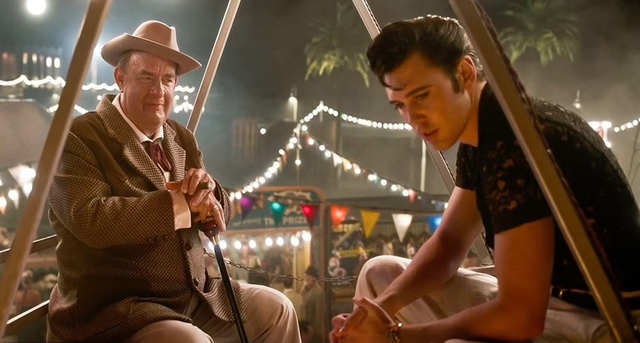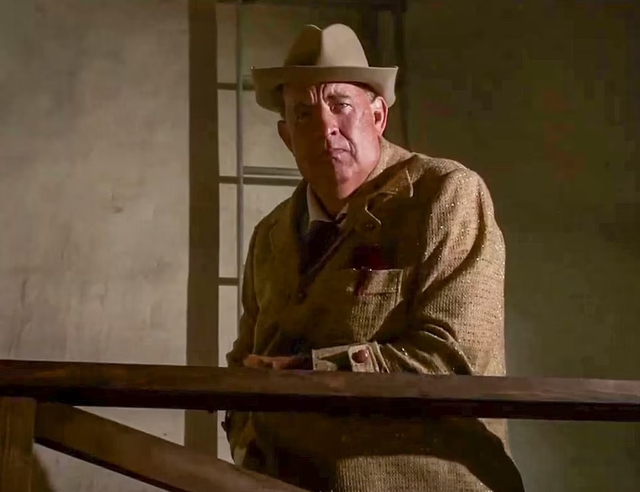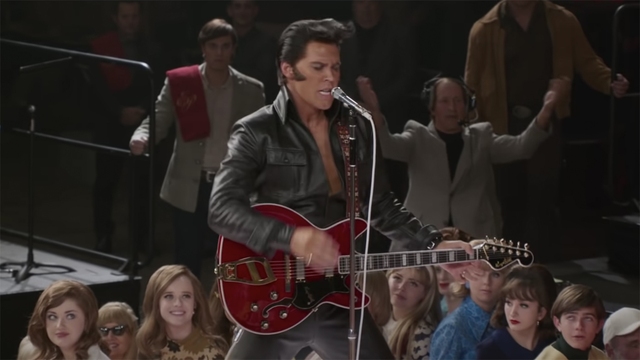Elvis - a musical film revolving around the life of "King of Rock" Elvis Presley directed by Baz Luhrmann is attracting audiences to theaters. In the movie, in addition to the rock king, the story of the life of Tom Parker - Elvis's mysterious manager - is also told in a dramatic way through the role of star Tom Hanks.
“Tom Parker wouldn't be anything without Elvis and Elvis wouldn't be Elvis without Tom Parker,” Hanks told the New York Times. So, what is the truth about this controversial figure?
Mysterious origin
At that time, Parker was a well-groomed man who spoke with a voice as sweet as honey and always claimed to be from West Virginia. According to the story, he was born and grew up here around the early 1900s, before running away from the orphanage to join the circus.
To audiences, he was an astute (but crude) businessman who created and managed Presley's career from the time he was a teenager until his sudden death at age 42. And they He is often known by the nickname "Colonel" - an honorary title awarded by the Governor of Louisiana in the late 1940s.

Elvis Presley (left) and manager, “Colonel” Tom Parker
However, the story of Parker's "phony" origin broke in the spring of 1960 - 17 years before the rock king passed away - in the most unbelievable way. At that time, a Dutch woman named Nel Dankers-van Kuijk sat in a hair salon, flipped through a women's magazine and "died" when she saw that in a photo, standing next to Elvis was her brother - Andreas. van Kuijk - or “Dries” for short. Dries had aged and become considerably thinner since she last saw her brother. But it cannot be denied that he was the man who mysteriously disappeared without a trace on May 17, 1929.
Later, it was learned that Parker was born in the small Dutch city of Breda in June 1909, the seventh child of an impoverished freight and delivery driver. Parker participated in carnivals and circuses from an early age. It was on the fair stage that he learned how to connect commerce with the art of advertising and image-building tricks.
At the age of 17, Parker left the Netherlands to board an American ship to work as a festival organizer before returning home 18 months later. In the Netherlands, Parker worked on the docks. Then, one day in May 1929, the 20-year-old young man disappeared forever. It is inexplicable why Parker left home a trunk filled with his most valuable possessions, including identification documents and money.

In the movie "Elvis"
The reason behind Parker's sudden departure from the Netherlands remains a mystery. Worth mentioning, in 1970, a journalist in the Netherlands asked the question: "Did something serious happen before Parker left in 1929 and cut off all contact with his family?". Then, Vellenga receives sensational news from an anonymous reader that Parker is the prime suspect in a brutal, unsolved murder case. The victim was Anna an den Enden (23 years old), the newlywed wife of a local vegetable seller. She was brutally murdered on the evening of May 17, 1929 - the same day as Dries' sudden disappearance. According to the police report, she was beaten to death with extreme force, but the killer covered the crime scene with a layer of white pepper to prevent sniffer dogs from tracking the perpetrator.
"Mastermind" in Presley's journey to becoming a superstar
In America, Parker married Marie Mott, a divorced beauty queen, and had a son in 1953. He began working as a promoter for cult music legend Gene Austin. Everything went smoothly, Parker used his extensive experience to sell tickets and attract crowds. Soon, Parker added Eddy Arnold, Minnie Pearl and silent film cowboy Tom Mix to his talented clientele.
In 1955, Parker heard early recordings by a trio called the Blue Moon Boys. He liked the musical style of the lead singer - Elvis Presley. As a reputable music promoter, Parker began booking gigs for them and managing them. After that, Parker became Presley's "sole advisor" with the permission of the boy's parents, because at that time the singer was not yet 21 years old.

Parker arranged for Elvis to leave Sun Records, a small street-front record label owned by Sam Philips where Presley began his career, and negotiated a lucrative new contract with RCA Records. Elvis Presley's first single Heartbreak Hotel later became the best-selling record of 1956 and helped him become a worldwide phenomenon.
Gradually, Parker eliminated all competition to become Presley's “sole and exclusive advisor,” as well as his agent and manager. And it was Parker who was the "mastermind" of Presley's meteoric rise to superstardom. During that journey, Parker always treated everyone like dirt and declared: "You don't have to treat people well on the way up if you don't come back down."
As Luhrmann's movie tells, it was Parker who invented the concept of two-sided business when he launched badges with the words "I Love Elvis" and "I Hate Elvis" on the market. I hate Elvis), while simultaneously wanting a stake in both sides of the market. In fact, Parker exploits everyone. His agreement with Elvis was 50% of the profits - while the common "share" between the manager and the singer at that time was 10%.

Presley became famous around the world while serving as a soldier in the US Army from 1958 to 1960. In fact, Parker convinced his client to enlist as a regular soldier, because he was worried that the Special treatment for the king of rock may increase hatred towards his detractors.
“Tie” clients to tour schedules and prescription medications
It was while stationed in Germany that Presley became addicted to amphetamines because he wanted to stay awake when he often had to work late at night.
Once back in America, Elvis's addiction (aided and abetted by Parker and a prescribing doctor named George Nichopoulos) became out of control as he tried to keep up with a grueling touring schedule.

At that time, anyone who wanted Presley to appear at his performance venue was required to bring $50,000 in cash to Parker's hotel room. Even if they couldn't find an agreement, Parker still took 10% of the money as a fee for the time it took to resolve the matter. In addition, anyone who wanted to "talk to" Parker had to spend a lot of money. Journalists have to pay $25,000 for “small talk,” $100,000 for a long interview.
And the more Pressley earned, the more Parker pocketed. When Hollywood producer Buddy Adler offered to turn rock and roll's biggest name into a movie star, Parker asked for a whopping $1 million per movie. Adler was offended and said that Presley needed a new manager.
Presley struggled to keep up with Parker's relentless touring schedule. At its peak, in 1973, Elvis performed at 168 concerts. David Stanley, Elvis' half-brother, told The Sun that the rock legend's drug habit became more severe in the last two years of his life - when he felt more controlled by Parker. .
Being "confined" to work, Presley's physical and mental health began to deteriorate. Parker looked at his health without worry. Because, based on his music and film publishing contracts, he realized that Elvis was still valuable to him even in death. And many fans later suspected that Presley was not allowed to tour internationally because Parker, an illegal immigrant to the US, lacked a passport and had never been a naturalized US citizen.
At the end of his life, Elvis once took 33 sleeping pills and 9 Demerol synthetic painkillers just to sleep in 24 hours. Drugs seem to be his only loyal friend" - said the King of Rock's half-brother. This legendary star passed away on August 16, 1977. Parker still lived for 20 years and died on January 21, 1997.


